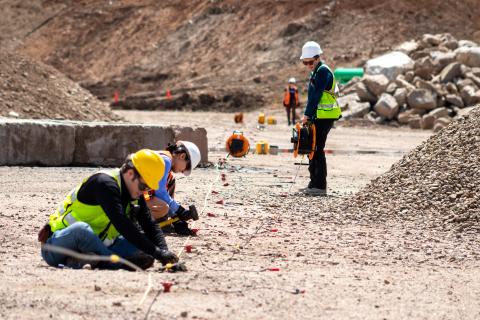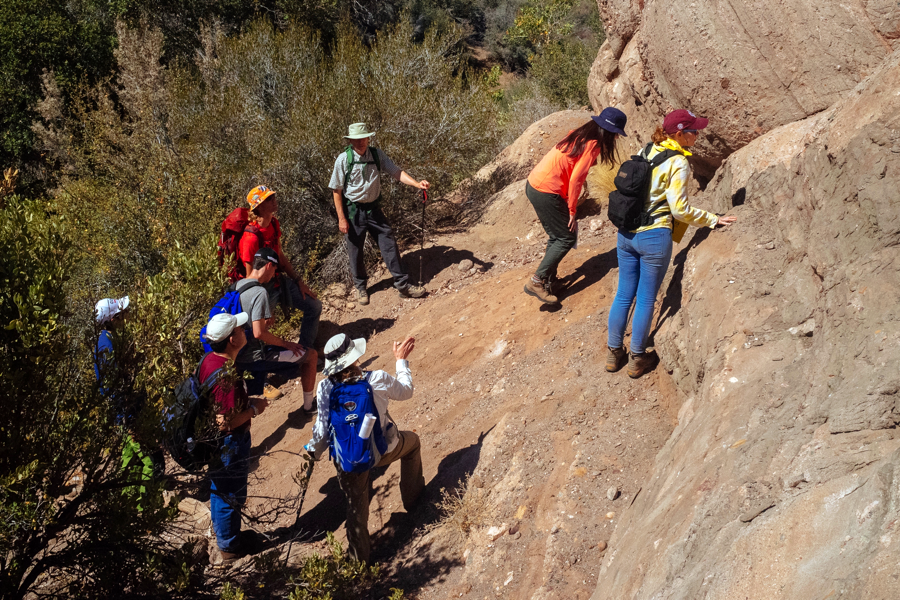All Categories
Featured
Table of Contents
Geological And Geophysical Surveys in Munster Australia 2020
This work is increasingly contracted out, so consultancies provide another source of employment. Consultancy firms vary in size, from really small business to big multinationals. Some consultancies are quite specialised in utilizing particular geophysical methods or working in specific locations, while others use a more varied variety of services to their clients.
The extraction of gas from garbage dump websites is another location of work and this might grow in the future. Expedition companies may undertake work for construction firms, public utility, mining business and ecological companies, so geophysicists may be used in any of these settings. Other companies consist of: geological surveysgovernment bodies and agenciesuniversities and research institutes.


Vacancies might be listed in the oil and gas sector press. Recruitment is affected by oil price changes and the level of competition for positions differs depending upon this. Careers Days, which cover the complete variety of geoscience professions and are usually participated in by a variety of key industry employers, are run by The Geological Society.
Consumer Guide To Geological And Geophysical Services ... in Karawara WA 2020
Some of the big oil and gas business provide a complete two-year structured training programme throughout the breadth of geophysics, including the opportunity to experience operate in various groups prior to specialising in one location. Your training may consist of work on: existing wellsmagnetic and gravitational possible field information analysisresearchrock analysis. However, it's more typical for your preliminary training to be supplied on the job.

There may be a probationary period during which you work along with a knowledgeable coworker. Competency-based appraisals occur regularly in many firms. In smaller firms, and for academic posts, there is unlikely to be any formal training - you'll be expected to begin work straightaway and select up skills as you go along.
If you work for a smaller sized business, you might find that you require to take duty for setting up and moneying your own development and training. If you have a geology degree, membership of The Geological Society can be useful for networking and for maintaining to date with the industry.
Geophysics in Coogee Australia 2021
You may also find it useful to sign up with the PESGB (The Petroleum Exploration Society of Great Britain, which has a geophysics unique interest group. After a probationary duration, and as soon as you've acquired some experience, you might advance to senior geophysicist, then team leader and then into a senior function in management.
The ease of movement between functions depends on the company structure. Research study at Masters or Ph, D level in a subject related to geophysics or geosciences may assist with your career development and progression. The employment market within the oil and gas market is very depending on rate and this might affect your chances for career development.
However, not all jobs are dependent on the oil and gas industries. For knowledgeable geophysicists, freelance consultancy uses a good path for career advancement. You can likewise specialise in a particular area of geophysics. As a geophysicist, you're likely to have several jobs throughout your working life. Global movement is crucial for dealing with peaks and troughs in various countries at various times.
Airborne Geophysical Surveys Of The Lower Mississippi ... in Churchlands Oz 2023
From geophysics, it's possible to focus on seismology (finishing additional training to become a seismic interpreter) or to move into associated areas such as engineering geology or threat forecast.
Deciding what to study in college is a difficult choice. Even if you understand that your field of interest lies in science, what program of research study is ideal for you?
But the first step to achieving your objective of ending up being a geophysicist is making a degree. Even for entry-level positions in the field of geoscience, you'll need a bachelor's degree (a geophysicist college degree) from a certified college or university. Some research study positions need prospects to hold master's degrees or even Ph.
Geophysical Survey Services - Geophysical Test Methods in Butler Aus 2023
Postgraduate degree are specifically important if you plan to teach at a four-year organization. Geophysicists apply physics principles and methods to study the gravitational, magnetic, and electric fields of the earth. This advances researchers' understanding of both the world's interior core and its surface area. Geophysicists must have the ability to: evaluate rocks, pictures, and other pieces of information conduct research study both in the field and in labs create maps and charts of their findings write reports To achieve all this, students require a specialized education for geophysicist careers.
As stated above, you'll need a bachelor's degree in geoscience or an associated discipline, such as a physical science or a life sciences, to land an entry-level job. However students can also prepare by learning topics like: Biology Chemistry Computer science Engineering Mathematics Physics The above geophysicist majors use a more generalized technique to a single scientific discipline, but many programs require trainees to take one or more geology course.
Table of Contents
Latest Posts
How To Become A Geophysicist in Mount Claremont Oz 2023
Geophysical Survey Next Step In Carbon Storage Study in Brookdale Western Australia 2023
Geophysical Investigations in Calista Western Australia 2022
More
Latest Posts
How To Become A Geophysicist in Mount Claremont Oz 2023
Geophysical Survey Next Step In Carbon Storage Study in Brookdale Western Australia 2023
Geophysical Investigations in Calista Western Australia 2022